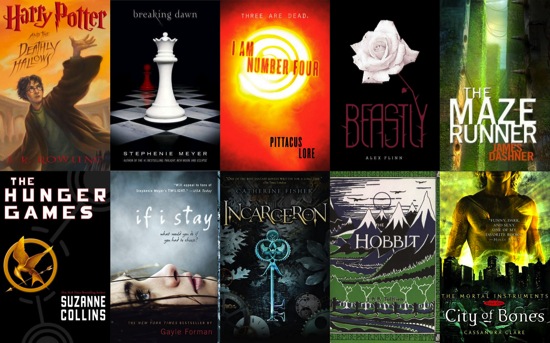 I was sitting on a crowded beach the other day, when I overheard a 50-something guy say, “Did you know The Way Way Back was filmed in Onset?”
I was sitting on a crowded beach the other day, when I overheard a 50-something guy say, “Did you know The Way Way Back was filmed in Onset?”
The man on the towel next to him replied, “I liked that movie, but I liked Perks of Being a Wallflower better. Did you read the book?”
Wow, I thought. Here are two middle-aged guys talking about, of all things, young adult literature on the beach. That’s amazing.
Ruth Graham wouldn’t agree. In her recent article Against YA, Graham states that adults should be embarrassed about reading young adult literature — that they should be reading books written for grown-ups, which, in theory, possess infinitely more gravitas. Her piece sparked a fiery Internet response, and rightly so: Nobody likes to be told what not to read.
Graham thinks that adults’ enjoyment of YA has to do with a shameful penchant for “escapism, instant gratification, and nostalgia,” but there are actually lots of other reasons adults read young adult literature.
Though I’m well beyond my teens, I’m thrilled by the current renaissance in young adult literature, and frequently choose books from the YA shelves. Young adult novels don’t come with an expiration date. You’re never too old to read them.
Some of the top reasons to read YA are:
1. We never stop asking the questions we asked as teens.
As a writer and reader I’m drawn to stories of adolescence, of the highs and lows of being a teenager in love, of reckless behavior, of big dreams and bigger disappointments. I especially like stories that ruminate on the unanswerable philosophical questions that so often preoccupy teens. Who am I? Why am I here? What the F is going on?
Although adolescence is the time typically associated with finding your identify and ‘coming-of-age,’ books that tackle these issues continue to interest us long after we’re handed a high school diploma.
2. YA books make fantastic use of voice.
A great voice in a novel can carry you through a book, and the absence of one can make you put it down. YA is known for its strong, unique narrative voices. Salinger set the standard for the quintessential teen voice in his iconic opening to The Catcher in the Rye:
“If you really want to hear about it, the first thing you’ll probably want to know is where I was born, and what my lousy childhood was like, and how my parents were occupied and all before they had me, and all that David Copperfield kind of crap, but I don’t feel like going into it, if you want to know the truth.”
The Catcher in the Rye would have been categorized as YA today, as would most coming-of-age novels from the past. Nearly every novel with a young protagonist is automatically considered YA these days, which means this genre is more varied than ever. The best contemporary YA authors carry on Salinger’s tradition of the endearingly cynical narrator, and excel at capturing the in-the-moment, snarky, breathless quality of teen voices.
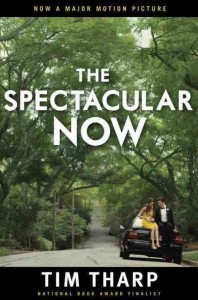
Take Tim Tharp’s The Spectacular Now, for example. Alcoholic narrator Sutter Keely’s voice is unforgettable — alternately charming, philosophical, and utterly infuriating. From the first line — “So it’s a little before ten a.m. and I’m just starting to get a good buzz going” — Keely’s beguiling voice carries you from good time to good time, and from bad decision to worse.
(What’s more, while Graham claims that “YA books present the teenage perspective in a fundamentally uncritical way,” this novel’s nuanced ending is hardly uncritical of Sutter or his philosophy of embracing ‘the spectacular now.’)
3. Young adult novels tell great stories!
You only have to glance at the YA shelves of your local bookstore to see that the art of story telling is positively thriving in young adult novels. Books about dystopias, dragons, vampires, ghosts, and space aliens rub shoulders with mystery, love stories, historical novels, and realistic coming of age tales. No subject is off limits — even the darkest ones, like addiction, suicide, eating disorders, bullying, and rape. The horror of high school is here in all its glory. And genres are crossed with a refreshing abandon often absent in more “adult” works.
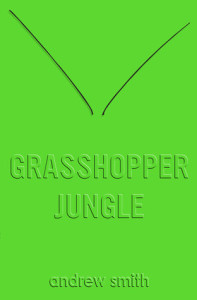
In Grasshopper Jungle by Andrew Smith, the teen narrator questions his sexuality while confronting an invasion of giant preying mantises. (And it is beautifully written to boot.)
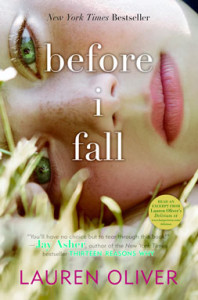
In Lauren Oliver’s Before I Fall, a teenage girl lives the day she died over and over, each time trying to change her fate. Her repeating high school day is described in exquisite detail, and the novel perfectly blends realism with its imaginative fantastical premise.
I also asked some of my writer friends about their favorite YA novels and why they read YA, and we all agreed: marketing labels shouldn’t matter when it comes to choosing what to read.
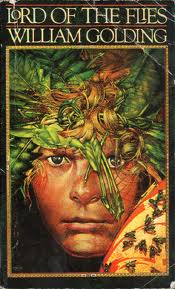
E.B. Moore says, “This labeling thing is ridiculous. A good book is a good book and should be read by all ages without discrimination or finger-pointing.” Lord of the Flies is one of her favorites. Considering that it involves boys stranded on a desert island, fat-shaming, bullying and murder, I’m guessing Lord of the Flies would be called YA today (not that labels matter).

Jennie Wood says, “My favorite YA anything is the graphic novel series Scott Pilgrim by Bryan Lee O’Malley. The series is the perfect blend of teen angst, whimsy, romance, action, with a full character / plot arc. And best of all, it does it with a wink, never taking itself too seriously. The perfect YA read.”
Carol Gray “loved The Hunger Games series – smart commentary on reality TV and modern culture.”
Lisa Birk loves “books filled with ideas and empathy with strong characters fighting for justice.” Her favorite YA novels include:
Wrinkle in Time — fascism & science, brilliant, compelling characters
The Outsiders — empathic, outsider boy in gang shows the emotional appeal and danger of the gang.
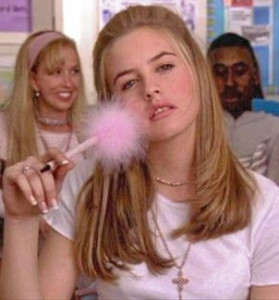
Marc Foster says, “Little Women is YA. Emma is effectively YA.” I agree. It’s no surprise that Emma inspired Clueless.
Margaret Zamos-Monteith says, “So many classic works of literature would be YA now – Catcher, To Kill a Mockingbird, A Separate Peace, etc. I don’t read by genre – a good book is a good book regardless of how they market it.”
There are so many YA novels, both new and old, that adults absolutely should read. So many, in fact, that I’d actually like to send the exact opposite message than did Graham:
If you read YA, don’t be embarrassed. Embrace it! And if you’re an adult who doesn’t currently read YA, don’t miss out any longer: Go forth and read some. Lastly, please share some of your favorite YA novels in the comments below!


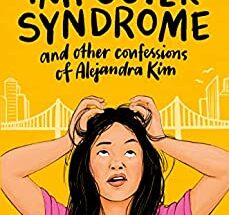
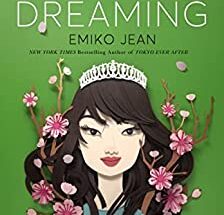
4 comments